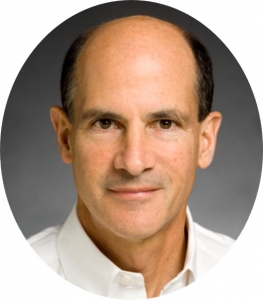THOMAS A. RANDO
 Director, UCLA Broad Stem Cell Research Center; Professor, Neurology; Molecular, Cell and Developmental Biology
Director, UCLA Broad Stem Cell Research Center; Professor, Neurology; Molecular, Cell and Developmental Biology
Thomas Rando, M.D., Ph.D., is the director of the UCLA Broad Stem Cell Research Center. In this role, he seeks to build on the Center’s strengths and to promote a culture of scientific excellence, academic integrity and interdisciplinary collaboration. He also works to establish partnerships with the larger scientific community—including other institutions and private companies—to address the most urgent challenges of medicine with the shared goal of improving human health.
As a board-certified neurologist who ran a clinical service for more than 20 years, Rando brings a strong translational focus to his own research and to his roles leading research enterprises. His interdisciplinary research program has made significant contributions to the fields of stem cell biology, the biology of aging, regenerative medicine and degenerative diseases. He has been at the forefront of studying how environmental influences affect the aging of stem cells and how alterations of those environmental factors can delay or reverse age-related changes.
His pioneering studies of the regulation of aging in mice showed that old tissues could be rejuvenated by exposure to young blood. These studies have formed the basis of an expanding area of research in the aging field and led to clinical trials of novel therapies for Alzheimer’s disease and other neurodegenerative diseases. Rando’s muscle regeneration and muscular dystrophy research informed the development of novel tools that enable non-invasive assessment of disease progression and therapeutic response in preclinical models of muscular dystrophies.
Prior to joining UCLA, Rando was a professor of neurology and neurological sciences at the Stanford University School of Medicine, where he also served as director of the Glenn Center for the Biology of Aging. Within the broader Stanford University community, he was deputy director of the Stanford Center on Longevity. In addition, he was the chief of neurology at the Veterans Affairs Palo Alto Health Care System and director of its Rehabilitation Research and Development Center of Excellence.
He received a bachelor’s degree in biochemistry, a doctorate in cell and developmental biology and a medical degree from Harvard University. He completed his internship at Massachusetts General Hospital, his residency in neurology at UC San Francisco and a research fellowship in molecular pharmacology at Stanford University.
